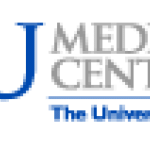- Industri: Medical
- Number of terms: 351
- Number of blossaries: 0
- Company Profile:
Stem cells that can develop into all the different cell types in the body except the placenta. They give rise to mulitpotent and unipotent stem cells as the embryo develops.
Industry:Medical
The oval spongy structure in the uterus from which the fetus derives its nourishment and oxygen. The placenta develops from the outer cell layer of the blastocyst, called the trophoblast.
Industry:Medical
Stem cells that can give rise to a limited number of other cell types. They are committed to becoming a variety of cell types associated with specific functions or organs/tissues (e.g., blood, heart, muscle) in the body. For example, blood stem cells give rise to red blood cells, white blood cells, and platelets.
Industry:Medical
The cluster of cells found inside the blastocyst that gives rise to all the cells of the body in the developing human organism.
Industry:Medical
A globular solid mass of cells (called blastomeres) formed by cleavage of a zygote.
Industry:Medical
Progenitor cells from which all blood cells derive. Haemotopoietic stem cells give rise to distinct two cells - one a replica of the stem cell and one a cell that will further proliferate and differentiate into a mature blood cell.
Industry:Medical
Cells comprising actual reproductive components of a human organism (e.g., eggs, sperm).
Industry:Medical
A reproductive cell containing half of the genetic material necessary to form a complete human organism. During fertilization, male and female gametes (sperm and ovum, respectively) fuse, producing a zygote.
Industry:Medical
